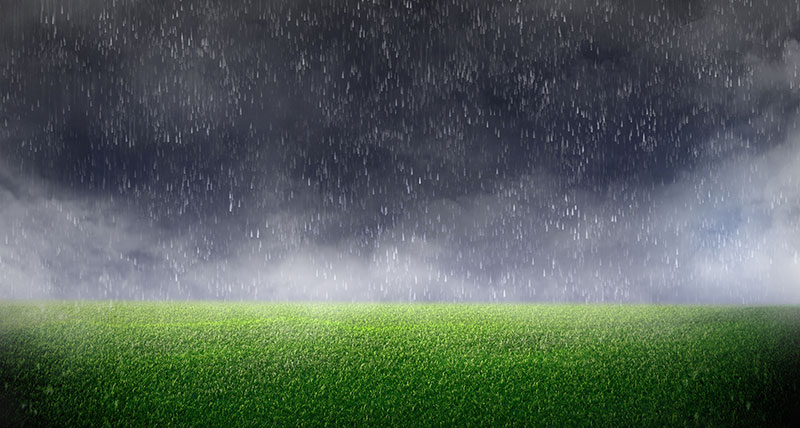Rain, rain and more rain! It seems as if it might never stop here in Georgia. And while we know it can cause nightmares on our commutes, it can also wreak havoc on our yards!
According to FarmandDairy.com, “the soil can only take so much water. After it’s maxed out, the water can pool, flooding your plants and washing seeds away. Weeds can grow rampant. It’s even impossible to get into your garden to tend to your plants without sinking several inches in the mud. You may end up with stunted plants and poor production after too much rain.”
The site also provides these helpful tips. With all the rain we have had in Georgia, these are quite timely!
What to do if your garden receives too much rain
Turn off your irrigation system. Stop watering your garden when rain is in the forecast. Even though soil moisture levels may be high, excess rain can remove oxygen from the soil and drown roots.
After the rain, check your plants to see if they are wilting or have leaf scorch. This is common in hot weather.
Stay out of the mud. Avoid walking in your garden if it’s muddy. Consider putting down mulch between rows of plants. Or, walk on boards or similar materials in your garden when the dirt is soaked instead of traipsing through the mud and adding to soil compaction.
Also, avoid digging in wet soil. Wait until it has dried out before working in your garden.
Combat soil compaction. Try applying mulch or groundcovers to soil to reduce compaction. You could also aerate the soil by using a core aerator. A wooden dowel rod or metal rod can be used to make the holes, too.
Take care of your plants. Wet weather brings out an abundance of slugs that will feed on both living and decaying plants. You can handpick slugs or set up traps to get rid of them. You can drown slugs in soapy water, smash them, spray them with 5 or 10 percent diluted ammonia or even pour fermented food into a container that will lure and kill them.
For more lawn or gardening questions, feel free to call Stone Creek Landscaping at 404-647-4297

